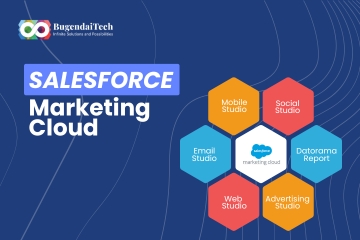Low-code and no-code platforms have become increasingly popular in the tech sector in recent years. With the use of visual interfaces and pre-built components, these platforms enable anyone to create apps, even those with little technical experience. Mobile apps are one area where this revolution in app development is having the biggest impact.
Let us explore the ways in which these platforms are changing the mobile apps creation.
1. Accelerated Development Process
Traditional mobile app development requires writing extensive code, which can be time-consuming. Low-code and no-code platforms, however, offer drag-and-drop features and templates that streamline the development process. This enables developers to build and deploy apps much faster, reducing the time-to-market significantly.
2. Lower Development Costs
Hiring skilled developers to build mobile apps can be expensive. Low-code and no-code platforms reduce the need for extensive coding knowledge, allowing businesses to utilize in-house talent or even non-developers for app creation. This reduction in dependency on specialized developers leads to substantial cost savings.
3. Increased Accessibility
One of the most significant impacts of low-code/no-code platforms is the democratization of app development. These platforms open up the world of app creation to a broader audience, including small business owners, entrepreneurs, and hobbyists. People with little to no programming knowledge can now bring their app ideas to life, fostering innovation and creativity across various fields.
4. Enhanced Collaboration
Low-code and no-code platforms facilitate better collaboration between technical and non-technical team members. Since these platforms are more visual and intuitive, stakeholders from different departments can participate in the development process. This collaborative approach ensures that the final product aligns closely with business needs and user expectations.
5. Rapid Prototyping and Iteration
In the competitive world of mobile apps, the ability to quickly prototype and iterate ideas is crucial. Low-code and no-code platforms enable developers to create functional prototypes rapidly. This allows for immediate user testing and feedback, which can be incorporated into the apps design and functionality, leading to continuous improvement and refinement.
6. Bridging the Skill Gap
The tech industry often faces a shortage of skilled developers, which can delay projects and stifle innovation. Low-code and no-code platforms help bridge this gap by empowering non-developers to take on development tasks. This not only helps meet the growing demand for mobile apps but also allows businesses to better utilize their existing workforce.
7. Flexibility and Customization
While low-code and no-code platforms offer pre-built components and templates, they also provide options for customization. Users can tweak the elements to better suit their specific needs. For more complex requirements, low-code platforms often allow for custom code integration, offering a blend of simplicity and flexibility.
8. Improved Focus on Business Logic
With the heavy lifting of coding taken care of by the platform, developers and business users can focus more on the business logic and user experience of the app. This shift in focus ensures that the app not only functions well but also meets the end-users needs effectively.
Low-Code and No-Code Platforms
Certainly! The following well-known low-code and no-code platforms have had a big influence on the mobile apps creation:
1. Appgyver
Type: No-code
Features: The Appgyver is known for its user-friendly interface and drag-and-drop functionality, making it easy for users without coding experience to build both mobile and web apps. It offers a wide range of pre-built components and templates to streamline the development process.
2. OutSystems
Type: Low code
Features: The OutSystems is a powerful low-code platform designed for professional developers to rapidly build and deploy complex mobile and web applications. It provides robust integration capabilities, advanced security features, and extensive customization options.
3. AppSheet
Type: No-code
Features: Acquired by Google, AppSheet enables users to create mobile apps from data stored in spreadsheets and cloud services. It offers a simple interface and powerful features such as data visualization, user management, and workflow automation.
Conclusion
Unquestionably, the emergence of low-code and no-code platforms is changing the process of developing mobile apps. By accelerating development, reducing costs, increasing accessibility, and promoting collaboration, these platforms are making it easier for anybody to create innovative and practical mobile apps.
As these technologies continue to evolve, we can expect even more significant advancements in the mobile app development landscape. Whether you are a business owner, a developer, or someone with a great app idea, now is an exciting time to explore the possibilities offered by low-code and no-code platforms.






Comments